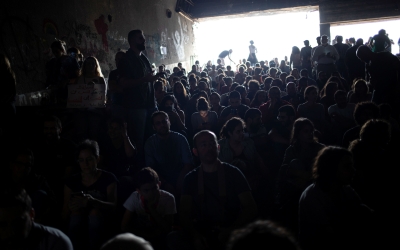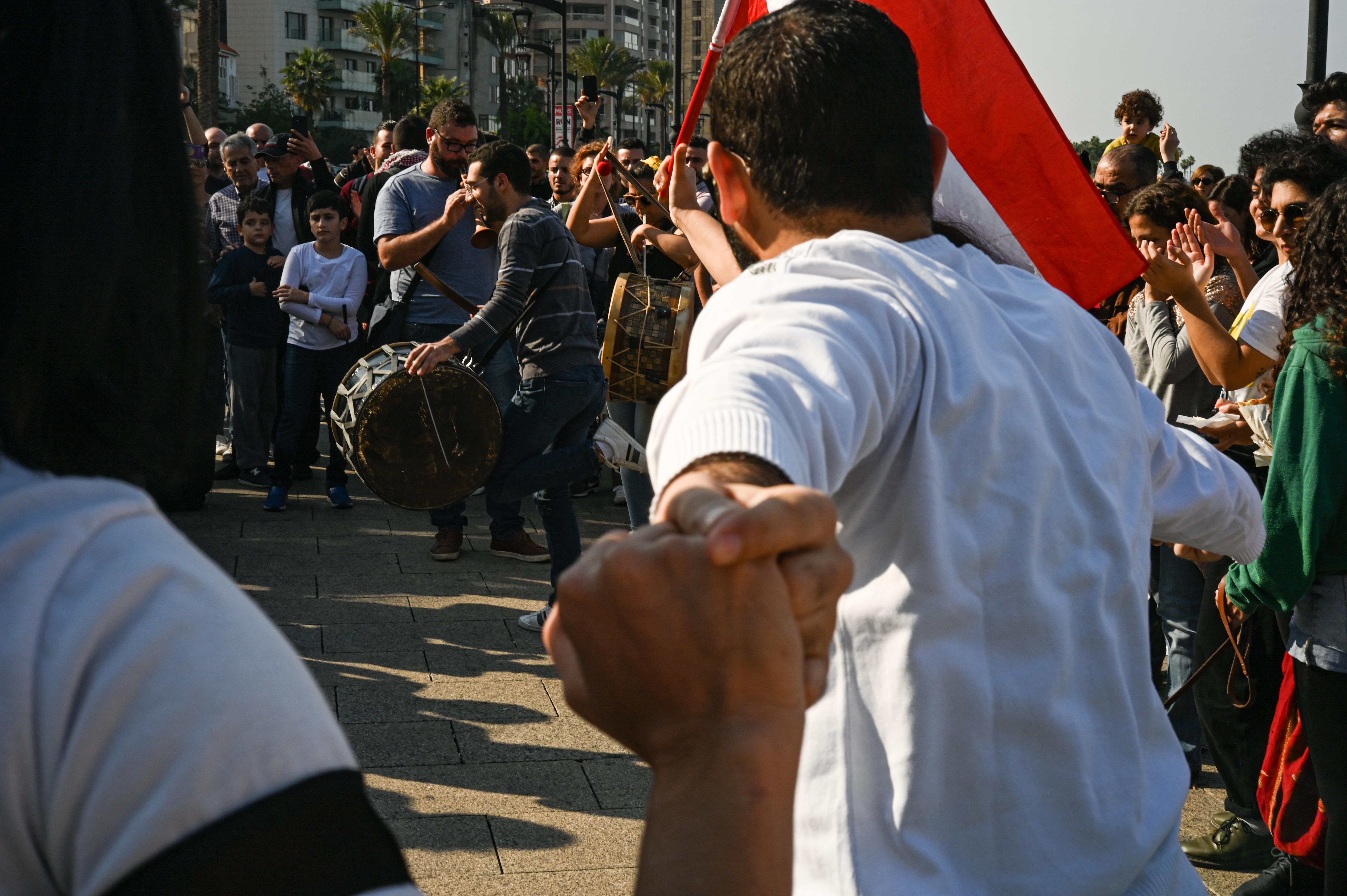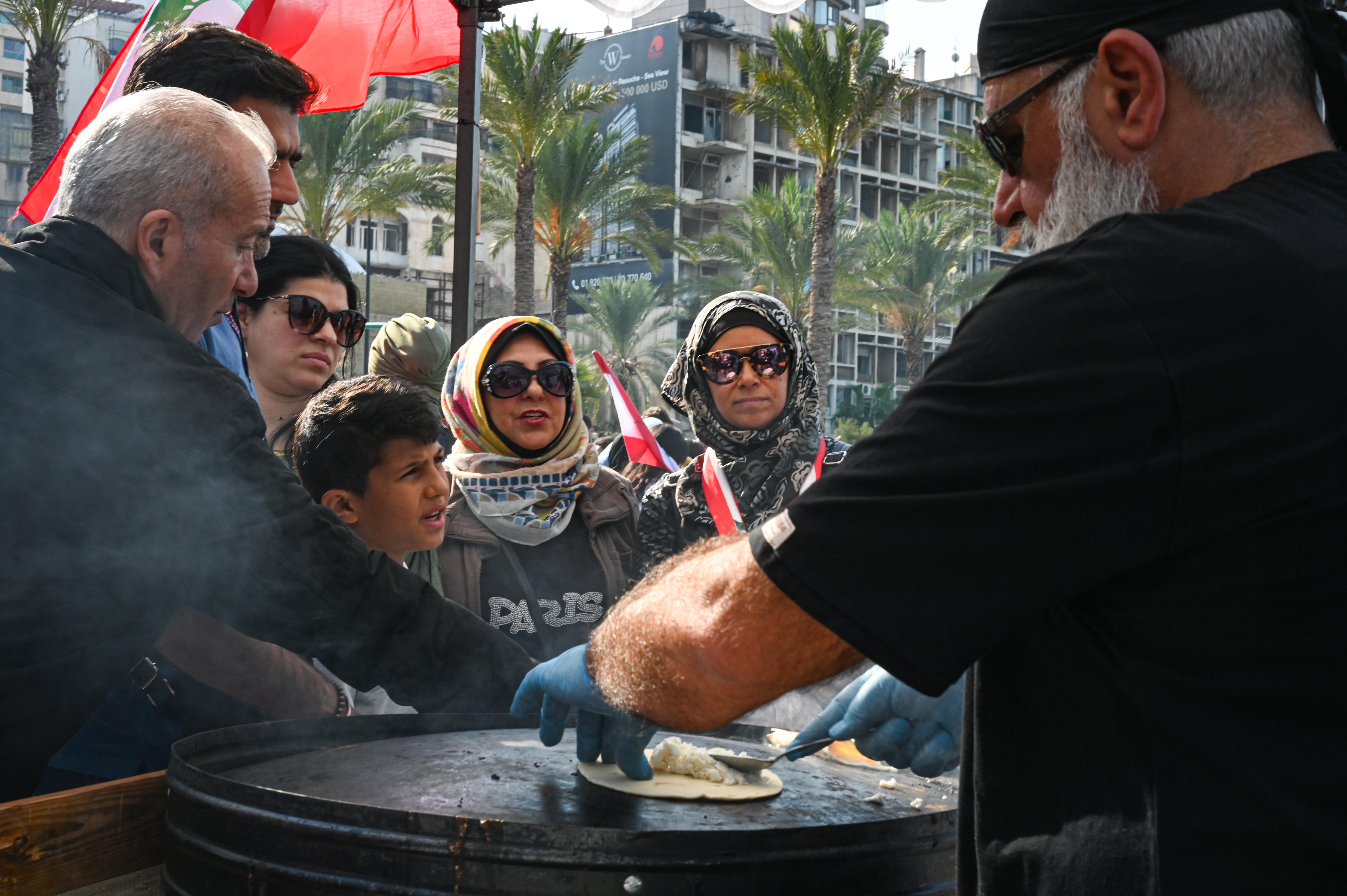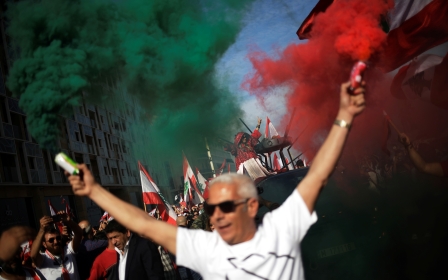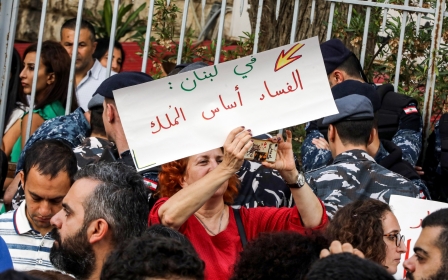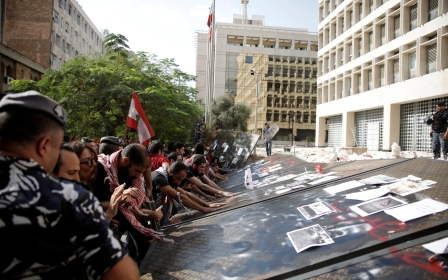Lebanon picnic protesters decry coastline privatisation
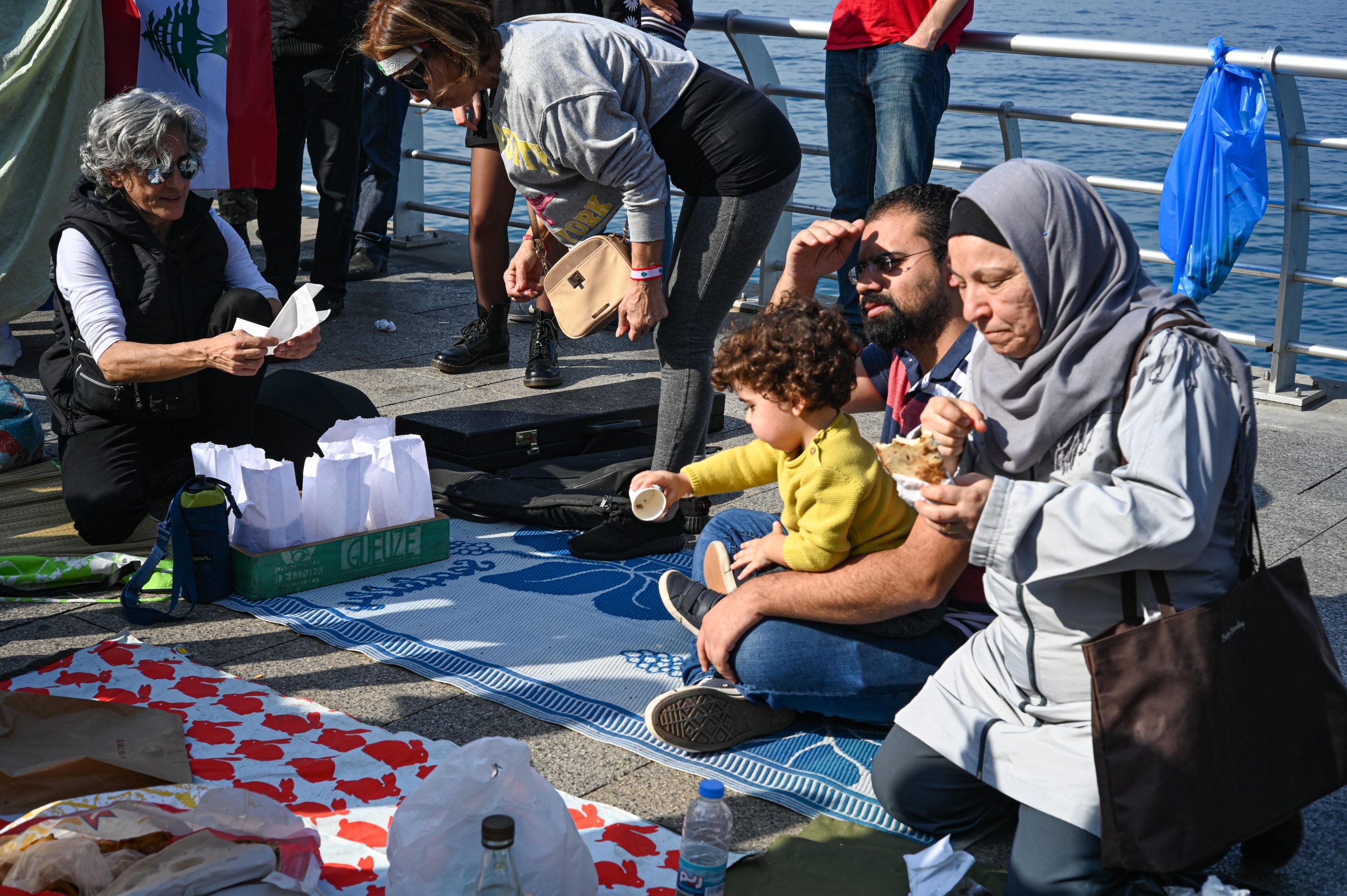
On a warm November Sunday a crowd has gathered along Beirut's corniche. They are protesting, but with no intention of marching anywhere. Instead, they have laid out picnic mats, while a nearby stall offers free saj flatbreads flavoured with thyme.
Two young men provide background music. One beats a drum carried over his shoulder, while the other plays a mizmar, a woodwind instrument shaped like a short oboe with a large flare at the bottom.
As the music trills, a group of women begin dancing the dabke to the distinctive rasp of the mizmar. A crowd cheers them on, while a father tries to persuade his young daughter to join in.
New MEE newsletter: Jerusalem Dispatch
Sign up to get the latest insights and analysis on Israel-Palestine, alongside Turkey Unpacked and other MEE newsletters
Several hundred Beirutis of all ages and backgrounds are here, although the crowd is significantly younger than many at the anti-government protests that started in mid-October and brought Lebanon to a standstill.
This kind of scene used to be much more common, says Wafa Rammal, a middle-aged woman wearing glasses, a hijab and despite the heat, a red jumper.
"In days gone by, every Sunday we would take our food and go down to Raouche nearby," she says, rummaging through a cooler packed with food and drink. "This kind of thing doesn't happen any more."
Wafa's son, Mohammad, also comments on the change. "Times have changed. This area was taken over by capitalists," says the 24-year-old civil engineer, who is wearing a button-down shirt and jeans. He holds a plate of lahme ba'jin – flatbreads topped with meat and pomegranate molasses.
Nearby, Zaitunay Bay, a glitzy marina development where millionaires keep their gleaming white superyachts, has been a frequent target of protests against corruption in the real estate sector and the steady privatisation of public land.
Bread, salt and the coast
Another protest in early November saw hundreds of demonstrators scale walls to access the land in front of the Lancaster Eden Bay resort, which was constructed on Beirut's last remaining public beach.
The hotel opened last year despite a report by the Beirut Order of Engineers and Architects documenting numerous violations of building and zoning regulations.
Less than 20 percent of Lebanon's coastline is still open to the public. This inspired the group that organised the picnic protest to plan contemporaneous events along the coast, from the seaside cities of Tripoli in the north to Tyre in the south.
"We are celebrating something that all Lebanese used to have," says Nadine Touma, a co-founder of Dar Onboz, the publishing house that organised Sunday's picnic protests under the banner "Khibez wa meleh" - bread and salt.
'In days gone by, every Sunday we would take our food and go down to Raouche nearby'
- Wafa Rammal, protester
She too reminisces about the days when "every Sunday, families of all religions and social classes packed their food and got together at a… public place. We didn't even think of them as that."
Natalie, a 38-year-old translator from the nearby mountainside town of Mansourieh, offers up slices of knefeh dessert in kaakeh sesame bread. She and her two friends sit by the railings at the edge of the corniche. The long fishing rods of the fishermen below rise above the barrier, occasionally twitching like the antennae of a giant insect.
"Public spaces in Lebanon are really rare," says Natalie. "You can't do anything outside without paying, everything is privatised."
A child rides his bike past their picnic mat. This initiative has been a great way of getting kids involved in the protests, says Natalie. She notes that the younger generation suffers as much as anyone from the lack of public spaces. "It's really sad because they have nowhere to go outside and have a good time."
The picnic protest has broken some of the barriers between the city's different age groups and classes, Natalie adds.
"Normally, people are really reserved," she says. "For the first time, they're coming down and sharing things together. It's really beautiful."
Her friend Bashar, a 29-year-old who works in marketing, agrees. He explains the meaning behind the "bread and salt" banner under which the protests were organised.
"It's used to express a connection between people when they break bread together," he says. "When we're eating together, we become like a family – all is one."
Middle East Eye delivers independent and unrivalled coverage and analysis of the Middle East, North Africa and beyond. To learn more about republishing this content and the associated fees, please fill out this form. More about MEE can be found here.


